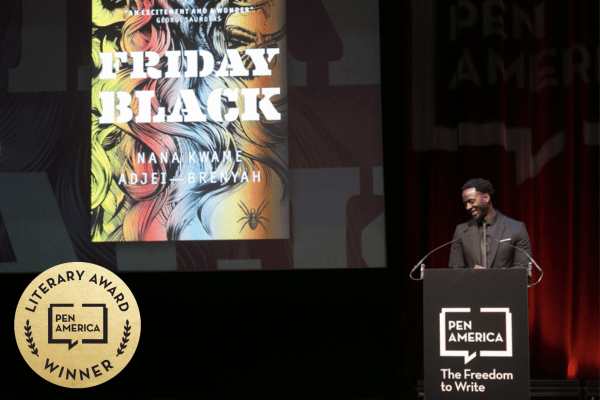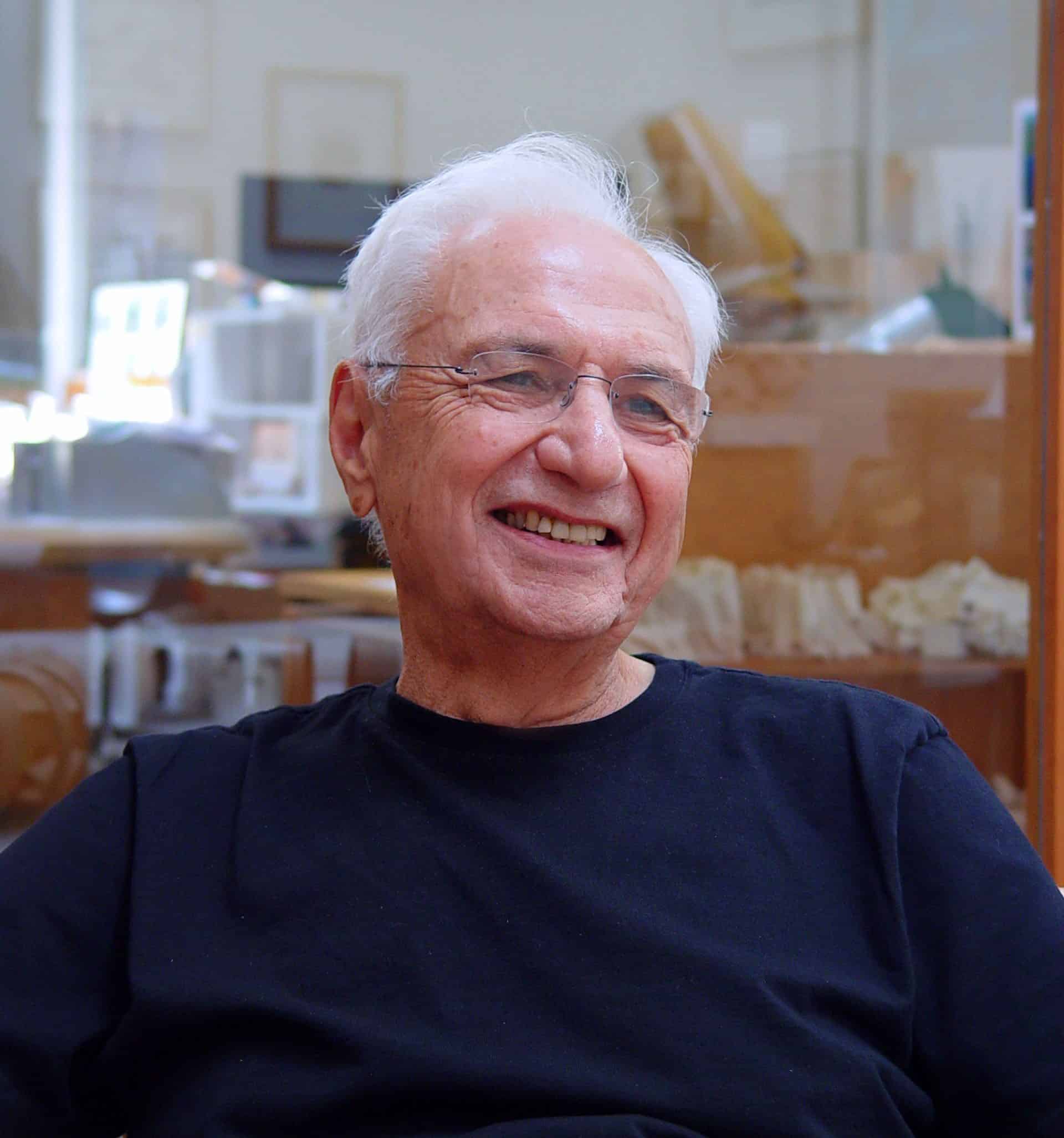PEN America is thrilled to announce the 2020 PEN America Literary Awards winners. The following book award winners were announced live at the 2020 PEN America Literary Awards Ceremony on March 2, 2020, at The Town Hall in New York City, which was hosted by Seth Meyers.
Since 1963, the PEN America Literary Awards have honored outstanding voices in fiction, poetry, science writing, essays, biography, children’s literature, translation, and drama. Backed by partners and supporters, this year PEN America conferred nearly 20 distinct juried awards, fellowships, grants, and prizes, awarding more than $330,000 to writers and translators.
Our awards are juried by panels of esteemed, award-winning writers, editors, booksellers, and critics. Learn more about each of the PEN America Literary Awards judges here.
Please note: The PEN/Hemingway Award for Debut Novel will be honored and celebrated on April 5, 2020, at the John F. Kennedy Presidential Library and Museum in Boston. Stay tuned for more details.
PEN/Jean Stein Book Award ($75,000)
To the author of a book-length work of any genre for its originality, merit, and impact, and that has broken new ground by reshaping the boundaries of its form and signaling strong potential for lasting influence.
JUDGES: Marilyn Chin, Garth Greenwell, Rebecca Makkai, Michael Schaub, William T. Vollmann
Where Reasons End, Yiyun Li (Random House)
Hudson | IndieBound
From the judges’ citation: “In this spare, haunting, deeply humane novel, Yiyun Li bends the conventions of narrative to accommodate an extremity of experience that’s often beyond representation. In these posthumous conversations between a mother and the young son she recently lost to suicide, what might have been an unremittingly desolate book instead bristles with humor and playfulness, and achieves finally a profound reconciliation. Li has written a novel unlike anything we have read before, a book that is beautiful and wise, and almost unbearably moving in its portrait of a woman turning to literature as to a last resort, and finding that it might—barely, savingly—suffice.”
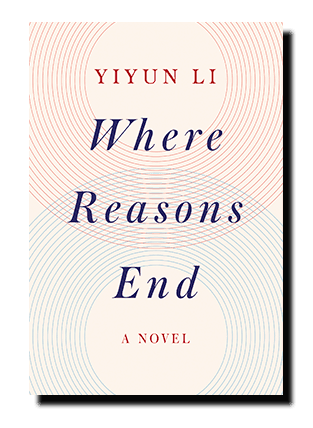
PEN/Robert W. Bingham Prize for Debut Short Story Collection ($25,000)
To an author whose debut collection of short stories represents distinguished literary achievement and suggests great promise for future works of fiction.
JUDGES: Aimee Bender, Jamel Brinkley, Samantha Hunt, Randa Jarrar, Elissa Schappell
Last of Her Name, Mimi Lok (Kaya Press)
Hudson | IndieBound
From the judges’ citation: “The stories in Mimi Lok’s Last of Her Name are more than just deeply felt, richly imagined, and darkly comic; they feel necessary. In these pages, we find fractals. The microscopic contains the macro. The collection ranges all over our globe while distilling breathtaking, tiny moments of tremendous significance. Whether we are with estranged siblings over a meal to try to talk, or moving back and forth in time to unearth one family’s personal history, or in the closet with an elderly homeless woman listening in on a younger man’s affluent life, we are moving constantly between different strata—place, age, class, view of the world. But with this range and movement comes astonishing intimacy and emotional acuity, a determination in each instance to locate that which is most true and most human.”
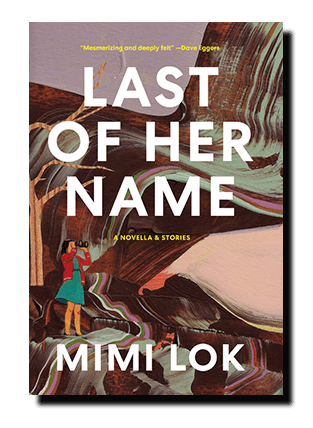
PEN Open Book Award ($5,000)
To an exceptional book-length work of any genre by an author of color, published in the United States in 2019.
JUDGES: Ali Eteraz, Marie Myung-Ok Lee, Dawn Lundy Martin, Alex Marzano-Lesnevich, Camille Rankine, Héctor Tobar
The Grave on the Wall, Brandon Shimoda (City Lights Books)
Hudson | IndieBound
From the judges’ citation: “Brandon Shimoda’s The Grave on the Wall is a wondrous feat of memory work, reportage, and writing. In a series of pilgrimages to landscapes on both sides of the Pacific Ocean—deserts, graveyards, deserted villages—Shimoda reconstructs the many journeys of his Japanese-American family. He begins with a search for his grandfather’s roots, and unfolds an intimate story of longing and reinvention. Gradually, a picture emerges of the tenacity and pain endured by a people scattered around the globe by chance, by need, and by their own hopes and ambitions. Written with a poet’s ear for lyricism, The Grave on the Wall is a meditation of the act of remembering, containing within its pages the plots of many novels and the haunting imagery of dreams. Brandon Shimoda has penned a beautiful and powerful work of nonfiction, while remaining unafraid to confront the injustice and state-supported acts of violence at the center of his tale.”
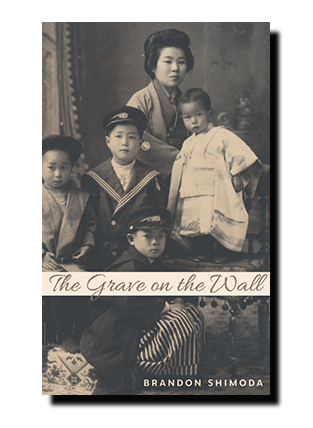
PEN Translation Prize ($3,000)
For a book-length translation of prose from any language into English, published in 2019.
JUDGES: Sean Gasper Bye, Jim Hicks, Geoffrey C. Howes, Sara Khalili, Elizabeth Lowe, Jenny McPhee
The Ten Loves of Nishino, Hiromi Kawakami (Europa Editions)
Translated from the Japanese by Allison Markin Powell
Hudson | IndieBound
From the judges’ citation: “Allison Markin Powell has translated best-selling Japanese author Hiromi Kawakami’s novel The Ten Loves of Nishino into sparkling, subtle English. Calling Kawakami’s title character a Lothario would reduce him to precisely the stereotype that the book’s 10 chapters dismantle. Each of the 10 women, even as she accepts Nishino’s fickleness as the price for partaking of his charms, has her own voice, attitude, and agency; Powell renders them all in a nimble, nuanced style that is at once colloquial and crystalline. The translation deftly conveys Kawakami’s gentle but incisive wit, keeping the reader from settling into any easy preconceptions based on nationality or gender.”
Honorable Mention: The judges also felt strongly that Jody Gladding’s translation of If You Cross the River by Geneviève Damas shows remarkable skill and delicacy of touch, resulting in a text that is vivid, elegant, and profound.
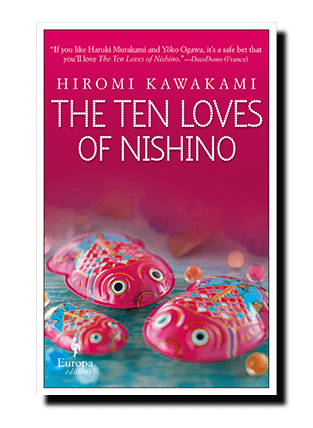
PEN Award for Poetry in Translation ($3,000)
For a book-length translation of poetry from any language into English, published in 2019.
JUDGES: Michael Eskin, Forrest Gander, Pierre Joris
The Winter Garden Photograph, Reina María Rodríguez (Ugly Duckling Presse)
Translated from the Spanish by Kristin Dykstra and Nancy Gates Madsen
Hudson | IndieBound
From the judges’ citation: “In jagged, fresh-cut, emotive rhythms, and in a lexicon sourced from science, domestic relations, and literature, Reina María Rodríguez creates a poetry of attentiveness so immediate that no sooner does it express itself, than it is subject to revision and qualification. Through the sensuality of her diction and the abruptive but musical pulse of her syntax, Rodríguez takes up the Wittgensteinian directive to look and see a world that, as the poet puts it, ‘fits into the eyes of the cat.’ The Winter Garden Photograph is as much discursive meditation on memory as it is a riveting embodiment of insight and intuition, and a declaration of love for the great surprising variety of the world. Almost impossibly, the translators negotiate the definitive peculiarities of Rodríguez’s unique phrasing with inspired English versions that neither normalize, dumb-down, nor exoticize the magic of the originals.”
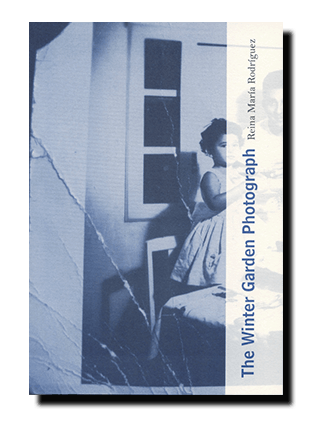
PEN/Diamonstein-Spielvogel Award for the Art of the Essay ($10,000)
For a writer whose collection of individual essays, published in 2019, is an expansion of their exceptional body of work focusing on the essay as an art form.
JUDGES: Jelani Cobb, Daniel Menaker, Judith Thurman
Resurrection of the Wild: Meditations on Ohio’s Natural Landscape, Deborah Fleming (Kent State University Press)
Hudson | IndieBound
From the judges’ citation: “In a field of writers eloquent about the pathologies of selfhood and modern life, Deborah Fleming’s Resurrection of the Wild stood apart. It is a collection of essays about the nature and natural history of her native Ohio: on its indigenous inhabitants and their fate; on the settlers who displaced them, or who, like John Chapman—’Johnny Appleseed’—tried to protect their way of life; on the early ecologists, like Aldo Leopold and Louis Bromfield, who raised an unheeded alarm against the ‘desecration’ of the land by industry and development. Towards the end of the book, Fleming writes: ‘Like careless children who waste their inheritance, we do not deserve the planet we have been given.’
“Fleming’s Ohio is a template for that planet, and her essays explore the zoology, botany, and anthropology of her home ground with astonishing specificity and Thoreauvian passion. Hummingbirds peck on her window if she is late serving up the nectar. The depradations of fracking and strip mining are described like the torture of body. We meet the Amish in all their admirable, clannish, and cagey variations. The seasons come alive and then slumber. In places, this is an elegy: ‘The earth has made us what we are, sustains us, and will take us back again when we have seen our share of passing seasons.’ Elsewhere, it is joyful and hopeful: ‘We need only look around to see that nature is trying to show us the gate that will lead us back inside.” Fleming’s work holds a key to that gate.’”
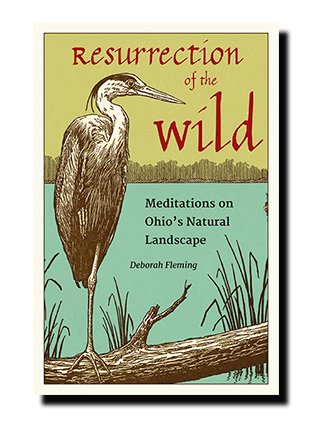
PEN/Jacqueline Bograd Weld Award for Biography ($5,000)
For a distinguished biography published in 2019.
JUDGES: David W. Blight, Yunte Huang, Miriam Pawel, Rebecca Walker, Shawn Wen
Sisters and Rebels: A Struggle for the Soul of America, Jacquelyn Dowd Hall (W. W. Norton & Company)
Hudson | IndieBound
From the judges’ citation: “Jacquelyn Dowd Hall has written a true achievement indicative of amazing research. Hall’s interviews with Katherine Lumpkin go back to the 1970s, and the book is carefully layered, weaving all three sisters’ lives into one narrative. Hall develops all three of them with empathy and sympathy. The sister Katherine is the progressive radical and most admirable, but both Grace and Elizabeth come to life in all manner of ways. All of them speak in their own words, their own writings, and above all, Hall writes with clarity and verve. This is a story of worlds partly vanished, but not entirely, and is one of the deepest dives into the makings and workings of the Lost Cause tradition one will ever find. The work is about the particular world that shaped these three women in Georgia and the larger South of the late 19th and early 20th centuries, but it is an American story of family, women’s spheres and how they were broken, of women’s professionalism, and of women authors both representing traditions they could not overcome and some they also smashed. In its entirety, the book is written with grace and beauty. This is history from deep in the archives and from a trained imagination.”
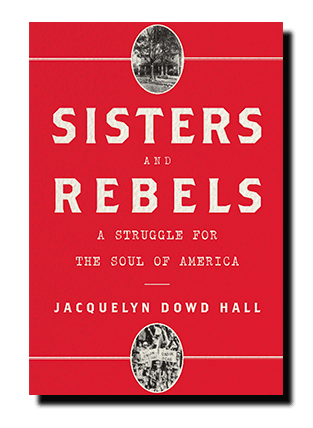
PEN/E.O. Wilson Literary Science Writing Award ($10,000)
For a book that exemplifies literary excellence on the subject of the physical or biological sciences and communicates complex scientific concepts to a lay audience.
JUDGES: Diane Ackerman, Rivka Galchen, Priyamvada Natarajan
Mama’s Last Hug: Animal Emotions and What They Tell Us about Ourselves, Frans de Waal (W. W. Norton & Company)
Hudson | IndieBound
From the judges’ citation: “It’s a great pleasure to award this year’s PEN/E.O. Wilson Literary Science Writing Award to preeminent primatologist, Frans de Waal, for his keenly observed, insightful, and wonderfully told exploration of the inner lives of animals, which highlights the bounty we share (and don’t share) with other species—both emotionally and psychologically. His lifelong study of primates, in the wild and in zoos, has led him to insights that are scientifically rigorous and not anthropomorphic, yet easy to understand in profoundly human terms. His elegantly written memoir, Mama’s Last Hug, is a book that reminds us that while our homo sapien life may seem very different from that of other animals, we inhabit a kingdom of neighbors.”
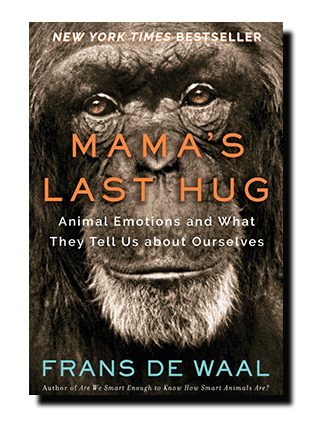
PEN/Edward and Lily Tuck Award for Paraguayan Literature ($3,000)
The PEN/Edward and Lily Tuck Prize for Paraguayan Literature is meant to assist with the translation of Paraguayan literature from Spanish or Guarani into English. It is open to both established and emerging Paraguayan writers. The award carries a cash stipend of $3,000 for the living author of a major work of Paraguayan literature.
JUDGES: Margaret Carson, Ezra E. Fitz, Susan Smith Nash, Charlotte Whittle
Liz Haedo for Pieles de Papel
From the judges’ citation: “In Pieles de Papel, her debut collection of short stories, Liz Haedo captures contemporary Paraguay with cinematic intensity, immersing the reader in an experience that combines Paraguay’s transforming Guaraní culture with its persistent legacies of brutal dictatorship and war. The stories’ structure resembles Paraguayan ñandutí (Guaraní for “spiderweb”), a hand-tatted lace whose symmetrical form incorporates the intentional irregularities of individual self-expression. In artful and incisive prose, the author balances crystalline observation with beguiling ambiguity. As part of a new generation of Paraguayan writers who did not grow up under Stroessner’s dictatorship, Haedo joins a wave of younger Latin American writers who continue to reckon with an unsettling past while exploring the disturbances and cruelties of the present.”
En Español:
“En Pieles de Papel, su colección debut de cuentos cortos, Liz Haedo capta el Paraguay contemporáneo con una intensidad cinematográfica para sumergir al lector en una experiencia que combina la cultura transformadora guaraní del Paraguay con sus legados persistentes de dictadura brutal y guerra. La estructura de los cuentos se parece al ñandutí (telaraña) paraguayo, un encaje hecho a mano cuya forma simétrica incorpora las irregularidades intencionales de la autoexpresión individual. Con un estilo de prosa artístico e incisivo, la autora equilibra su observación cristalina con una ambigüedad embelesadora. Como parte de la nueva generación de autores paraguayos que no creció bajo la dictadura de Stroessner, Haedo se une a una ola de escritores latinoamericanos que sigue enfrentando un pasado desconcertante mientras que explora los disturbios y crueldades del presente.”
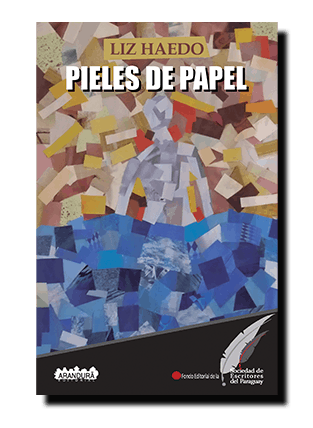
PEN/Nabokov Award for Achievement in International Literature ($50,000)
The award will be conferred annually to a living author whose body of work, either written in or translated into English, represents the highest level of achievement in fiction, nonfiction, poetry, and/or drama, and is of enduring originality and consummate craftsmanship.
JUDGES: Lila Azam Zanganeh, George Elliott Clarke, Hari Kunzru, Viet Thanh Nguyen, Alexis Okeowo
M. NOURBESE PHILIP
From the judges’ citation: “Hailing from Tobago, and now African-Canadian, M. NourbeSe Philip is the perfect candidate for the 2020 PEN/Nabokov Award for Achievement in International Literature. From her first book publication in 1980, she continuously fuses fierce ethics with experimental aesthetics, empathetic politics with avant-garde poetics, drafting sinuous argument, heart-stopping narratives, and paradoxical characters—all to showcase our moral crises. Uncompromising in thought, her works—essays, plays, poetry, fiction—never compromise, never try to circumscribe quandaries. Schooled in that dismal science—economics—and in that divisive meditation—law, Philip wields her scholarly acumen to reveal, forensically and viscerally, the anguish of the downpressed and the self-imprisonment of oppressors. To do so, she pushes language into Nabokovian mazes of miscommunication—all broken tongues and busted jaws, or typography gone haywire, or etymology become a branch of entomology, so that the classics are vivisected and syntax dissected. The dark parts of history make her sorrowful, but her responsive rage inspires purifying analyses that smash smokescreens into smithereens, to beckon on light.”
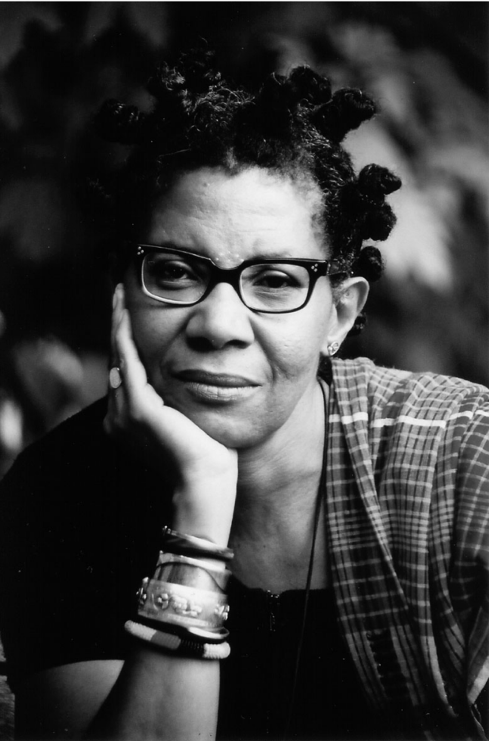
PEN/Laura Pels International Foundation for Theater Award
To a playwright working at the highest level of achievement in mid-career.
JUDGES: Kirsten Greenidge, Naomi Iizuka, Branden Jacobs-Jenkins
TANYA BARFIELD
From the judges’ citation: “Tanya Barfield is a dramatist whose art wrestles with nothing less than the human heart at war with the human condition. With a unique emotional vividness and political nuance, her body of work to date explores the complications of lives lived on the margins of belonging—or between so-called ‘identities.’ Her characters are often seekers—of safety, of family, of wholeness through human connection—haunted and hamstrung by histories, both national and individual, of alienation and dispossession. Whether it’s the black tenured math professor in Blue Door (2007) coming to terms with the literal haunting of his ancestors, or the couple attempting to adopt an African child battling the specters of their own white privilege in The Call (2013), or the intersectional lovers in Bright Half Life (2014) possessed by the spirits of their younger selves in a newfound era of marriage equality, Barfield’s worlds are full of ghosts, and it is only through a confrontation with them that the living truly learn what it is to live. Her consistent ability to map this truth out for us again and again—and with such technical rigor and formal inventiveness—makes her one of the most powerful and compelling playwrights writing today. The judges are convinced even greater work is still on the horizon, and we are privileged to witness the further unfolding of this oeuvre in the years to come.”

PEN/Voelcker Award for Poetry ($5,000)
To a poet whose distinguished and growing body of work represents a notable and accomplished presence in American literature.
JUDGES: Cornelius Eady, Linda Gregerson, Deborah Paredez, Monica Youn
RIGOBERTO GONZÁLEZ
From the judges’ citation: “Rigoberto González is one of our great mythmakers, cutting to the core of historical narratives and present-day calamities, exposing the faultlines of greed and violence, love and hunger, cruelty and corruption, family and tribe that pattern human experience. His exquisitely crafted lines and stanzas create prismatic structures, in which past and present reflect and refract each other, by turns surprising and inevitable. The son and grandson of migrant farm workers, and claiming a cultural heritage of lyricism and activism, he is attuned to the voices of the dead and the living, and he counsels us, ‘To reach the dead / walk toward the structures still standing, / their windows still looking in.’ There is perhaps no greater champion of Latinx poets and poetry than Rigoberto González. He has devoted his writing life not only to the development of his astonishing voice as a poet and nonfiction writer, but to his astute and discerning craft as a reviewer and steadfast advocate for other Latinx voices. He has served as a faculty member of CantoMundo, a founding member of the Advisory Circle of Con Tinta, a collective of Chicano/Latino writers, and a monthly columnist on Latino literature for NBC Latino online, as well as critic-at-large for the Los Angeles Times. From him, we are continually reminded of the political intervention and community formation that can arise from reading closely and proclaiming the praises of one another’s work rather than succumbing to the myth that there is only room for a select few of us in the spotlight. He enlarges every space he enters with his words and invites other writers in to enlarge their own practice and poetics with him.”

PEN/Mike Nichols Writing for Performance Award ($25,000)
To a writer whose work exemplifies excellence and influence in the world of theater, television, or film.
TOM STOPPARD
From the judges’ citation: “In Leopoldstadt, Tom Stoppard, a prolific Czech-British writer, has written his most personal work yet. Leopoldstadt has been described as ‘an intimate drama with an epic sweep’ (The Guardian) and is a story of ‘love, family and endurance.’ His accolades include four Tony Awards and one Academy Award, and in 1967, Stoppard became the youngest playwright to have a play produced at the National Theatre, where his play, Rosencrantz and Guildenstern Are Dead, premiered. Stoppard’s writing has a visceral force and extracts new meaning from history and the literary canon. Deemed ‘Britain’s Greatest Living Playwright’ by The Times (UK), he has proven himself an essential master, one whose twistingly cerebral works—suffused with humor and heart—are likely to affect beyond the stage and screen.
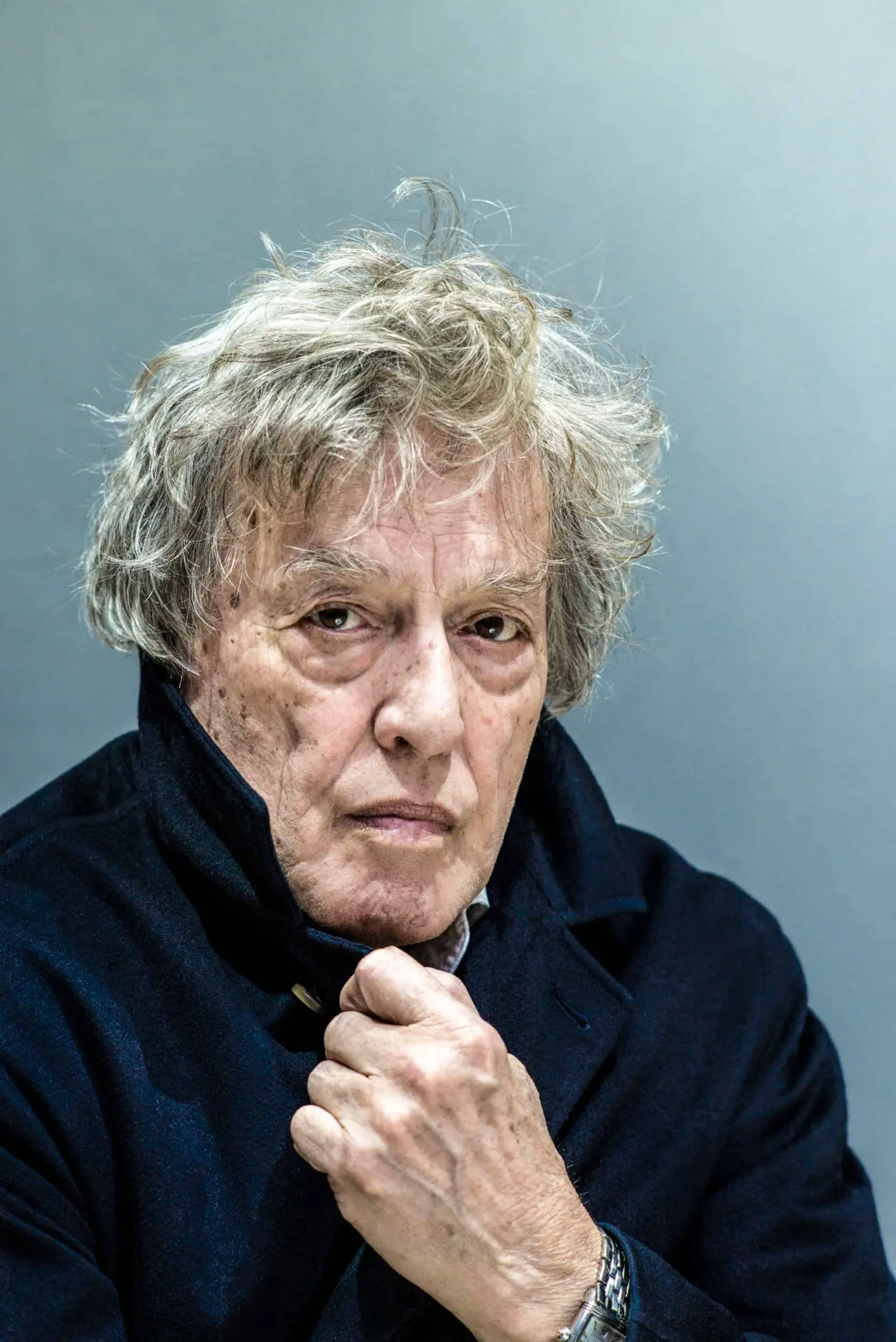
PEN/Robert J. Dau Short Story Prize for Emerging Writers
Recognizing 12 emerging fiction writers each year for their debut short story published during a given calendar year in a literary magazine or cultural website, and aims to support the launch of their careers as fiction writers.
JUDGES: Tracy O’Neil, Nafissa Thompson-Spires, Deb Olin Unferth
“Bat Outta Hell” (Foglifter Journal), Damitri Martinez
“Cats vs. Cancer” (New England Review), Valerie Hegarty
“Dog Dreams” (Quarterly West), Sena Moon
“Don’t Go to Strangers” (Zyzzyva), Matthew Jeffrey Vegari
“Evangelina Concepcion” (Epiphany), Ani Sison Cooney
“Failure to Thrive” (The Paris Review), Willa Richards
“Gauri Kalyanam” (The Rumpus), Kristen Sahaana Surya
“Madam’s Sister” (Granta), Mbozi Haimbe
“Summertime” (Michigan Quarterly Review), Mohit Manohar
“The Good, Good Men” (Puerto del Sol, Black Voices Series), Shannon Sanders
“The Other Child” (The Threepenny Review), David Kelly Lawrence
“The Water Tower and the Turtle” (Granta), Kikuko Tsumura, translated by Polly Barton
Prizes, Grants, and Fellowships for Works-in-Progress
PEN/JEAN STEIN GRANT FOR LITERARY ORAL HISTORY (10,000)
For a literary work of nonfiction that uses oral history to illuminate an event, individual, place, or movement.
JUDGES: Kate Bernheimer, Heid E. Erdrich, Alessandro Portelli
Sharony Green, The Baa Haas (work-in-progress)
From the judges’ citation: “Dedicated with academic and compassionate care to an underrepresented black population of Bahamian descent in Florida, The Baa Haas beautifully reflects the values of literary oral history. Sharony Green is simply a wonderful storyteller. In the tradition of Zora Neale Hurston’s Every Tongue Got to Confess, The Baa Haas gives the community access to public discourse and gives readers access to an unforgettable history. Here are true stories of the history and reality of a diminishing population. Here is an intersectional story at a time of geographic and economic trauma. As is often the case, the ‘margin’ turns out to be central to our understanding of the world in which we live.”
PEN/PHYLLIS NAYLOR WORKING WRITER FELLOWSHIP ($5,000)
For an author of children’s or young adult fiction, whose work is of high literary caliber, designed to assist a writer at a crucial moment in his or her career to complete a book-length work-in-progress.
JUDGES: Karlan Sick and Christine Taylor-Butler
Tiffany Parks, Saving Caravaggio (work-in-progress)
From the judges’ citation: “Tiffany Parks’ Saving Caravaggio is a rich blend of historical and speculative fiction. Set in Rome in the late 1500s, the story follows 15-year-old Olimpia, a headstrong teen with a passion for science and Nardo, the son of an apothecary left orphaned and impoverished after a flood. Their worlds collide when they encounter the mysterious Michelangelo da Caravaggio, whose paintings may be more than what they seem. Parks’ meticulous research and flawless world building weaves a tale of magic and political suspense that will keep readers on the edge of their seats. Saving Caravaggio was the unanimous choice of the judges.”
PEN/HEIM TRANSLATION FUND GRANTS ($2,000–$4,000)
View all PEN/Heim grant winners here »


